Build a 24/7 AI Brand Monitor: Crontap + Replicate's Llama 3.1
Learn how to set up a brand monitoring AI agent, utilizing the power of Crontap for scheduling and Replicate's Llama 3.1 for sophisticated content analysis.
Crontap allows scheduling highly configurable API calls using cron or human readable syntax. Integrate it with thousands of apps using Zapier or Make and get notifications in your favorite service, email or via sms.
Sign up for free, no credit card required.
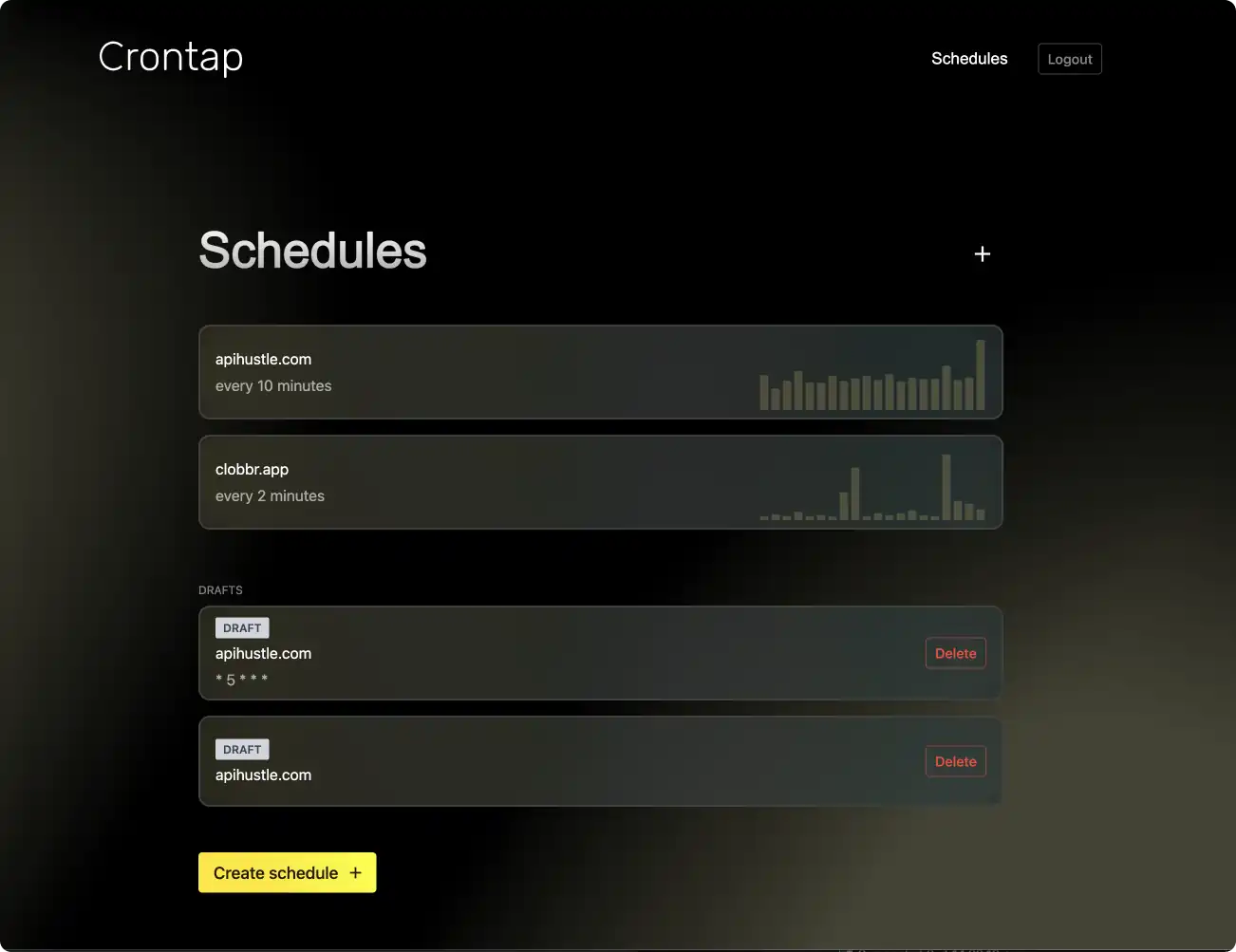
Crontap integrates with thousands of apps through IFTTT, Zapier, Make or even custom webhooks. Use tools such as Slack, Telegram, Discord etc. to trigger notifications when a schedule fails or succeeds.
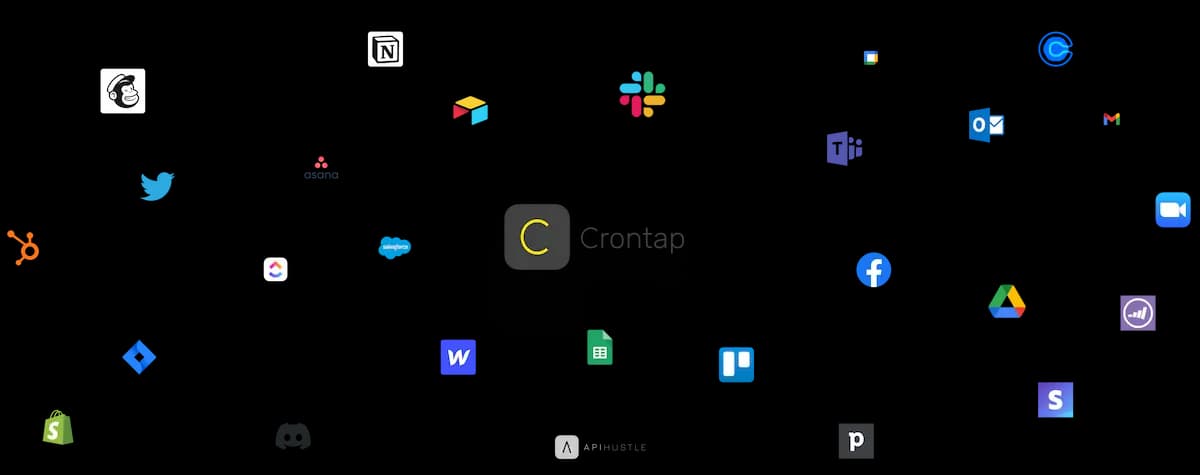
Crontap supports scheduling recurring API calls using human readable syntax so you don't have to deal with crons if you don't want to!
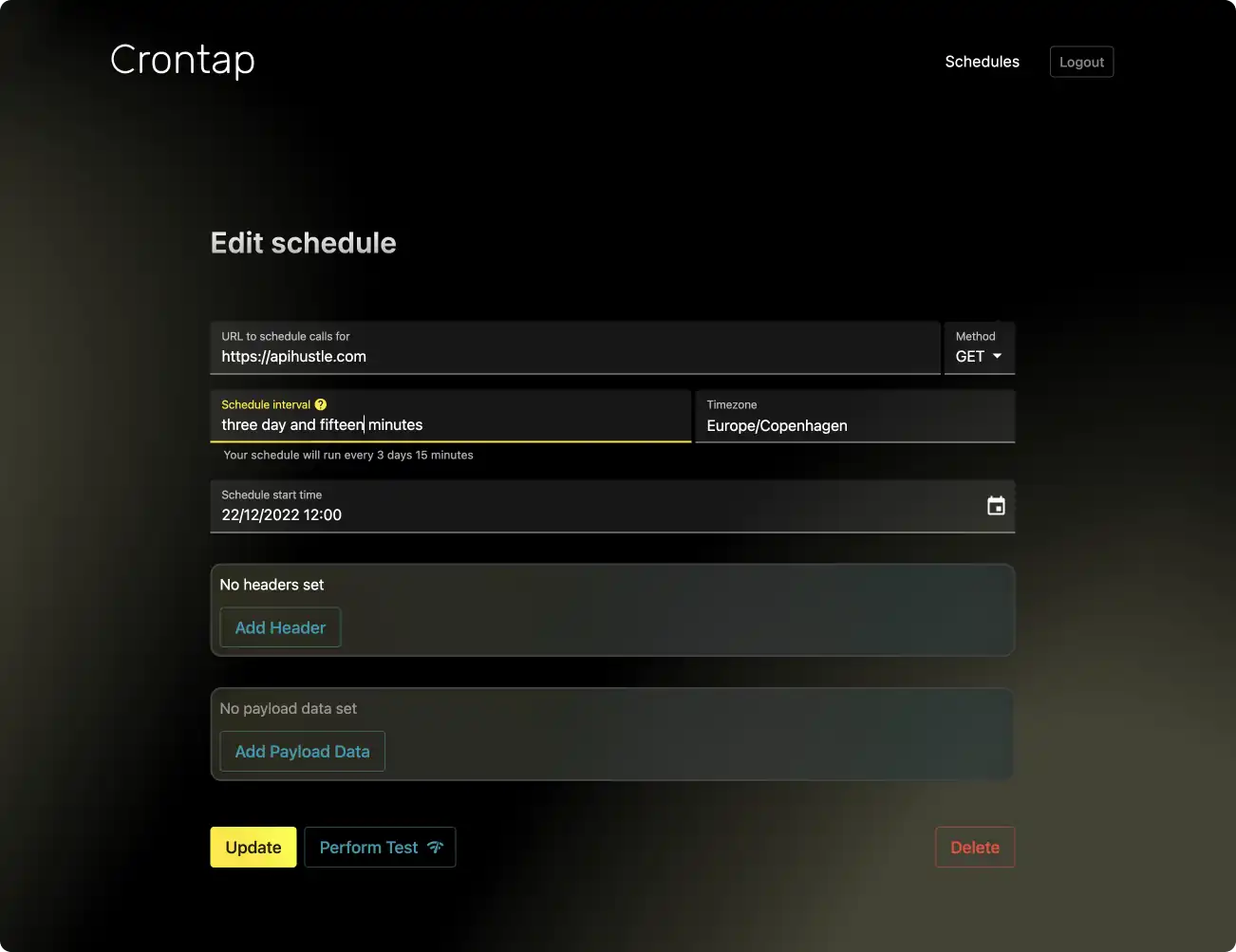
Unlock the full power of schedules by scheduling recurring API calls using cron/crontab syntax. See the next scheduled calls as you type and use templates to get started quickly.
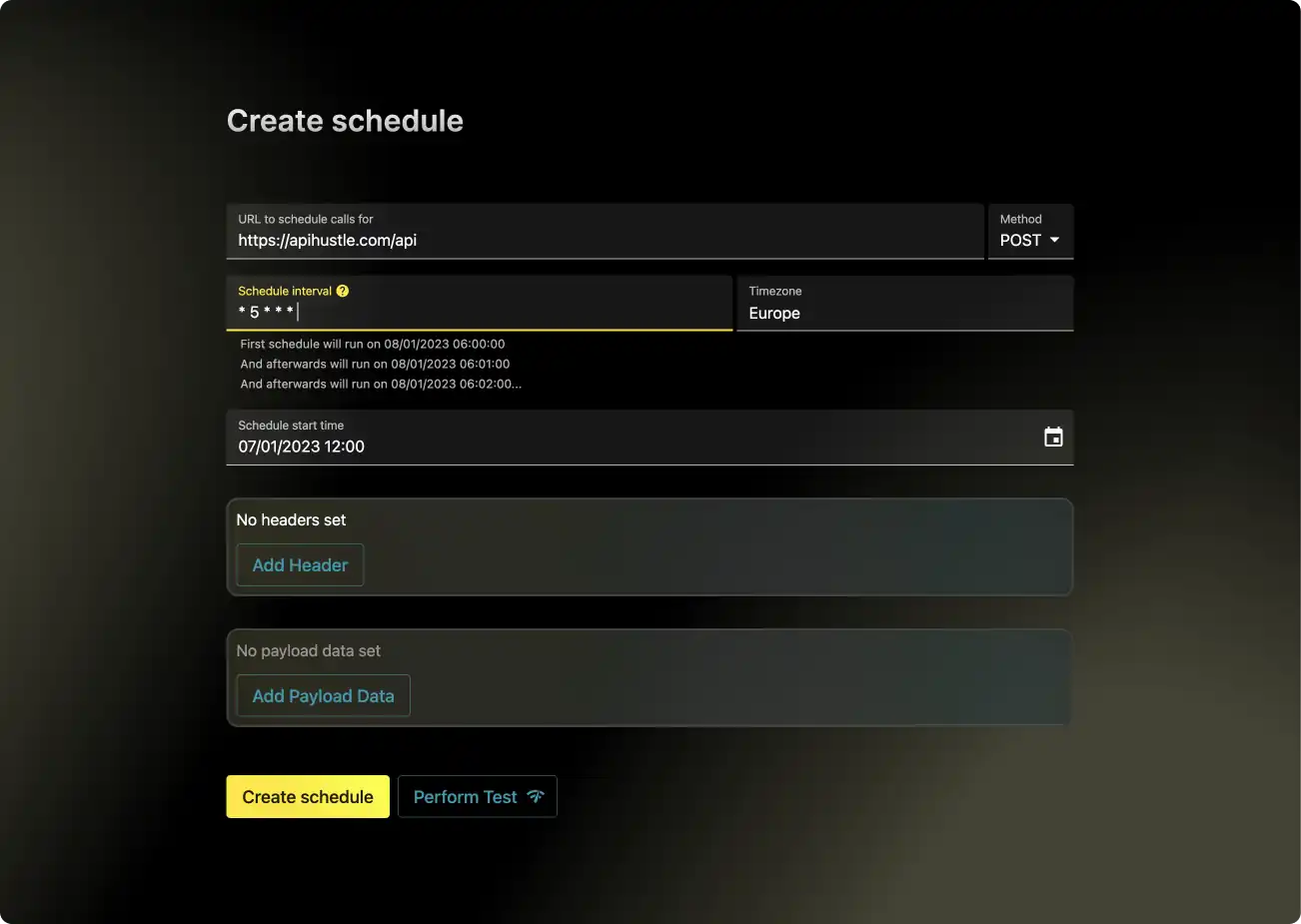
Crontap supports setting the timezone for a given schedule. This is useful if your API is in a different country than you are.
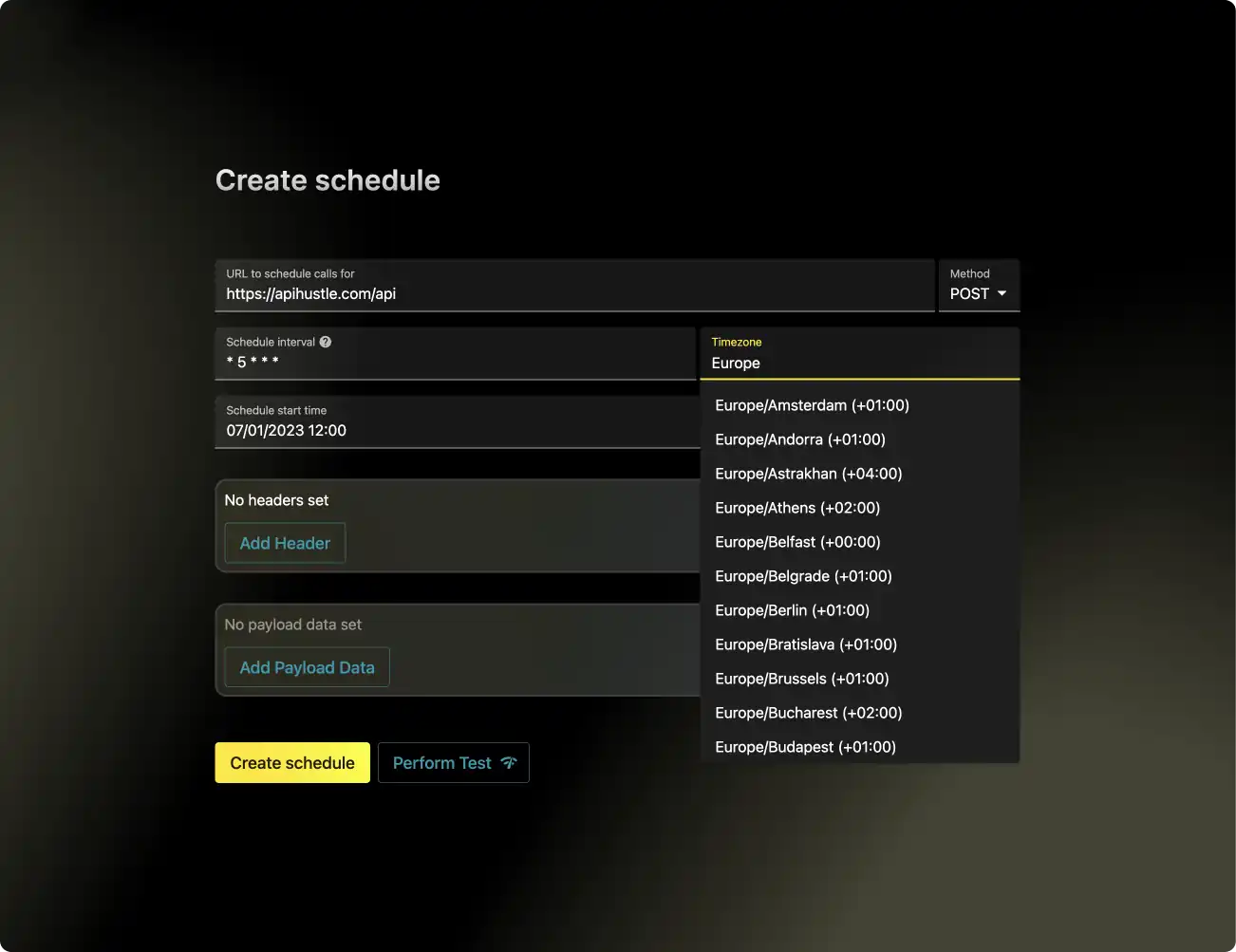
Crontap supports setting request headers for your API calls. This is useful if e.g. your API requires authentication.
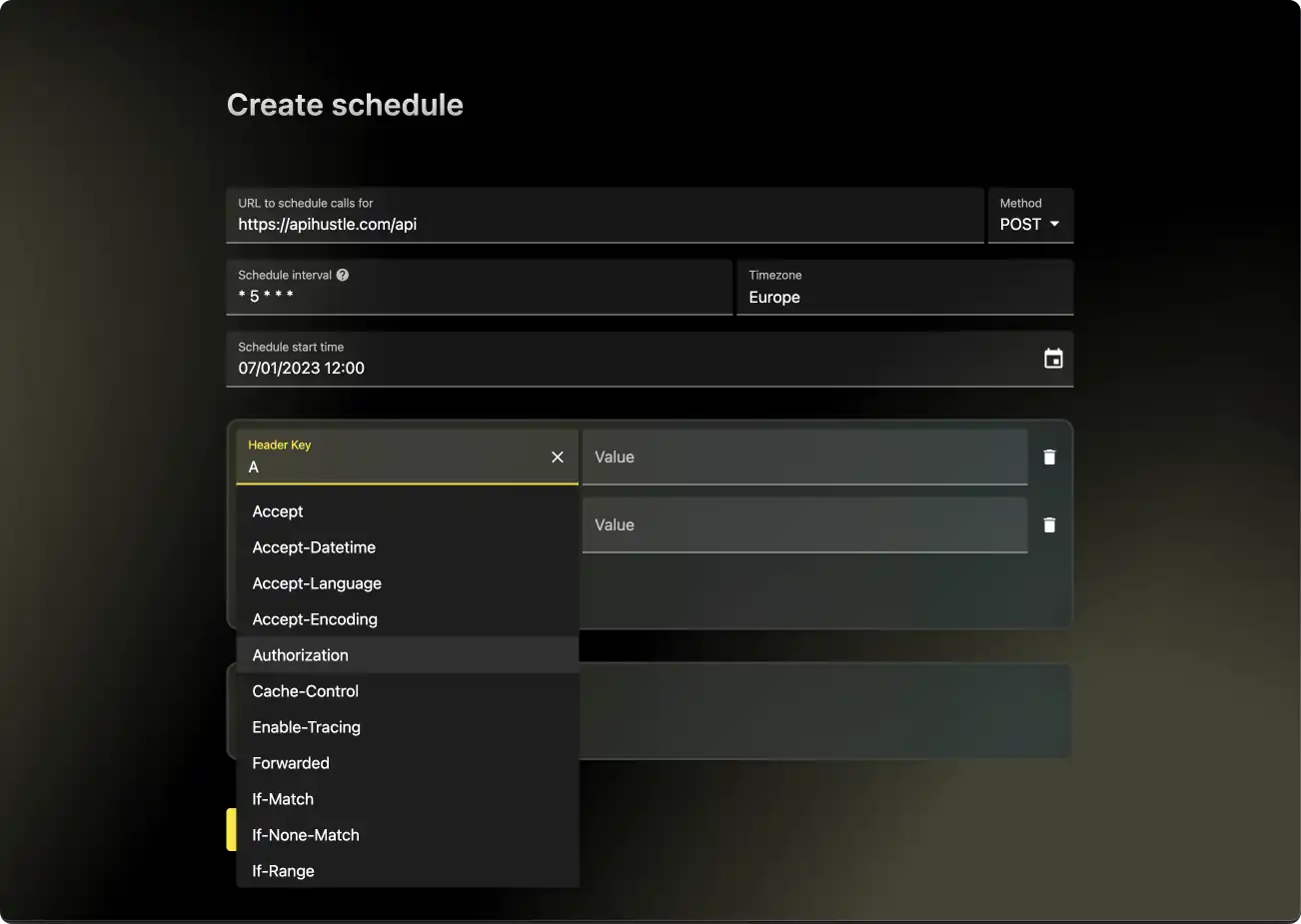
Easily add a payload (body) to your API calls. Use the advanced built-in JSON editor to include data with your request. Autocomplete, validation and syntax highlighting are all at your fingertips.
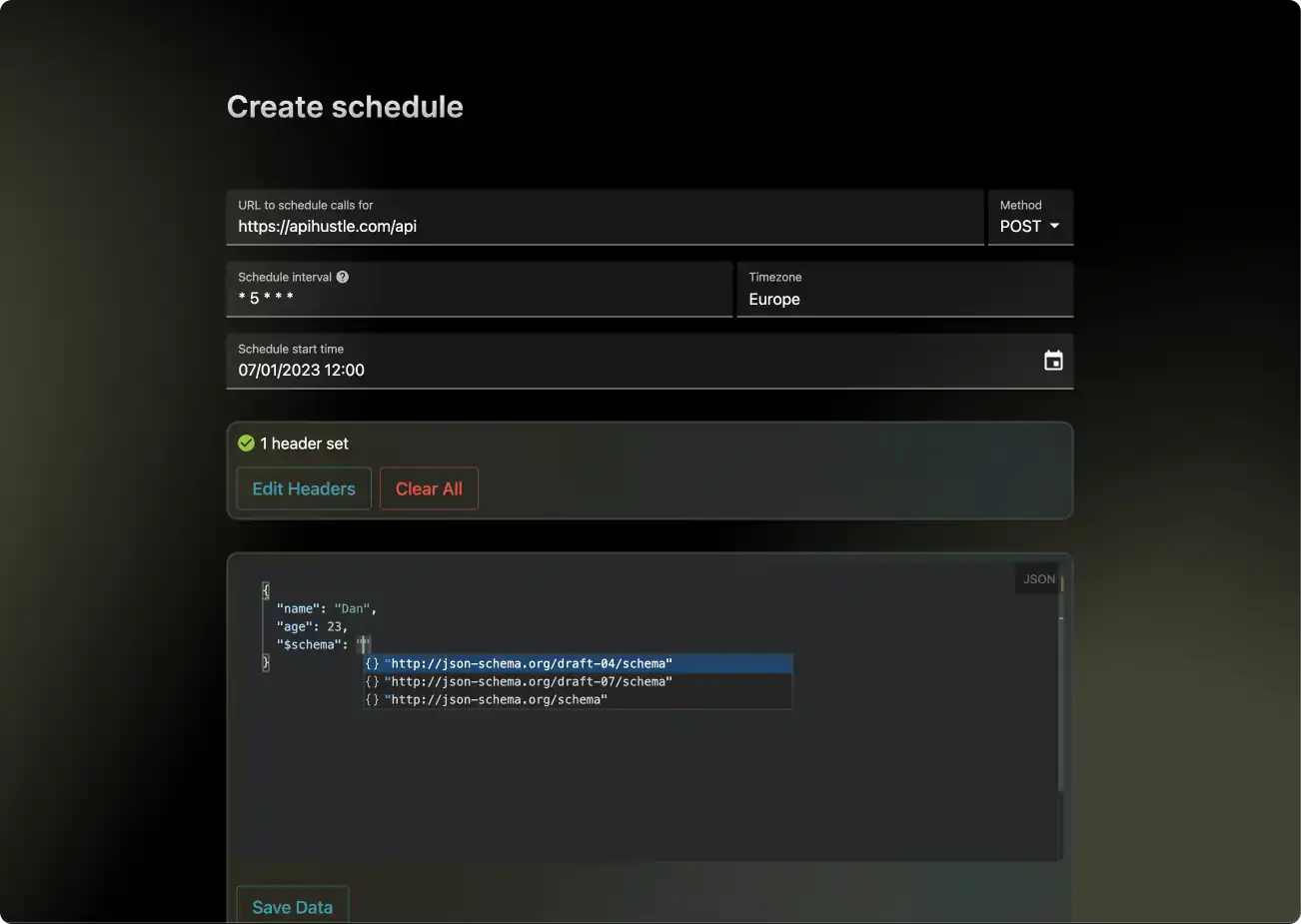
You can test your API calls as you set them up. No waiting for calls to fail or succeed, see the results instantly and test if your integrations work as expected.
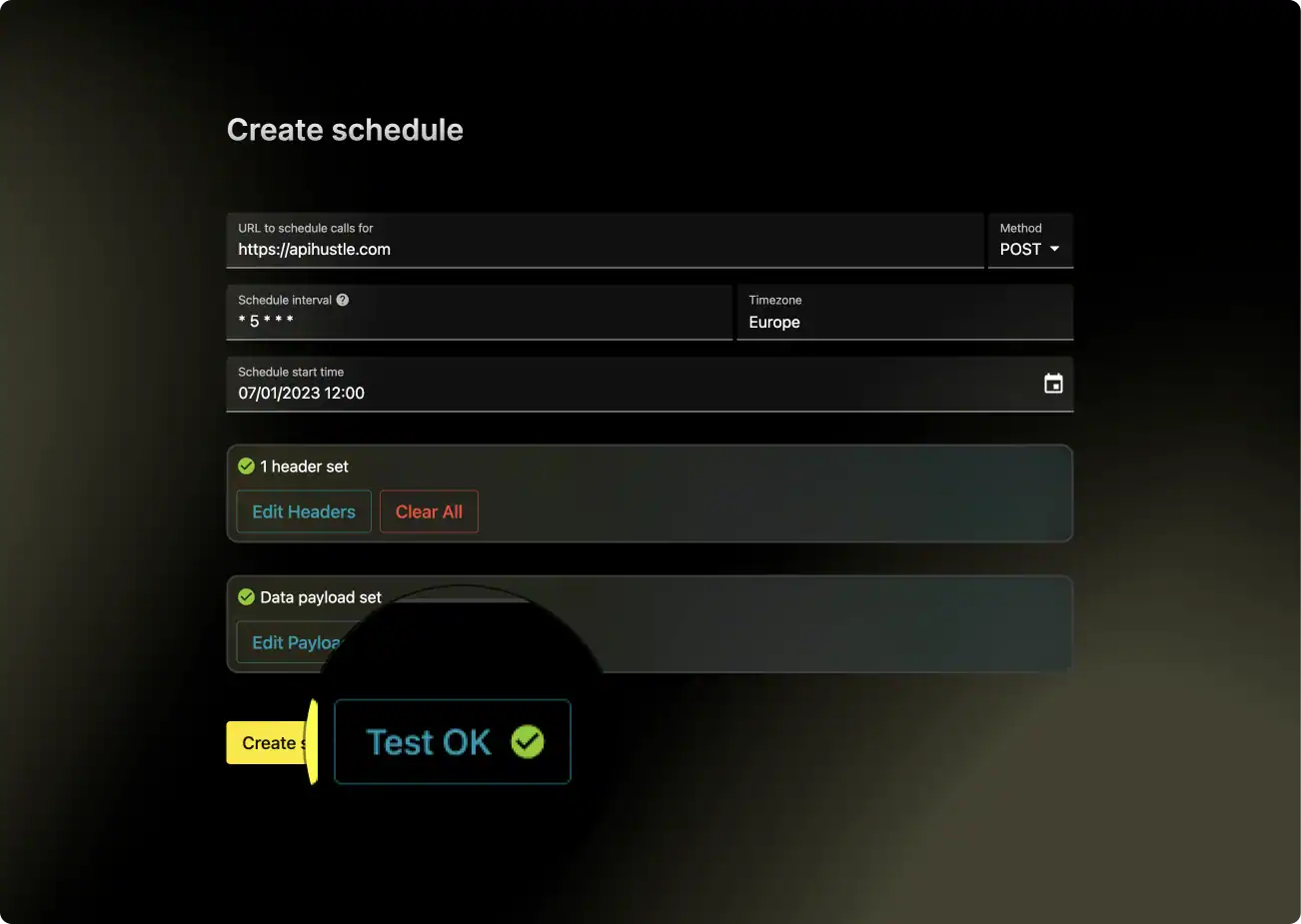
While testing, see how API calls that you are trying to schedule fail in detail and get notifications when things go wrong repeatedly via email and more.
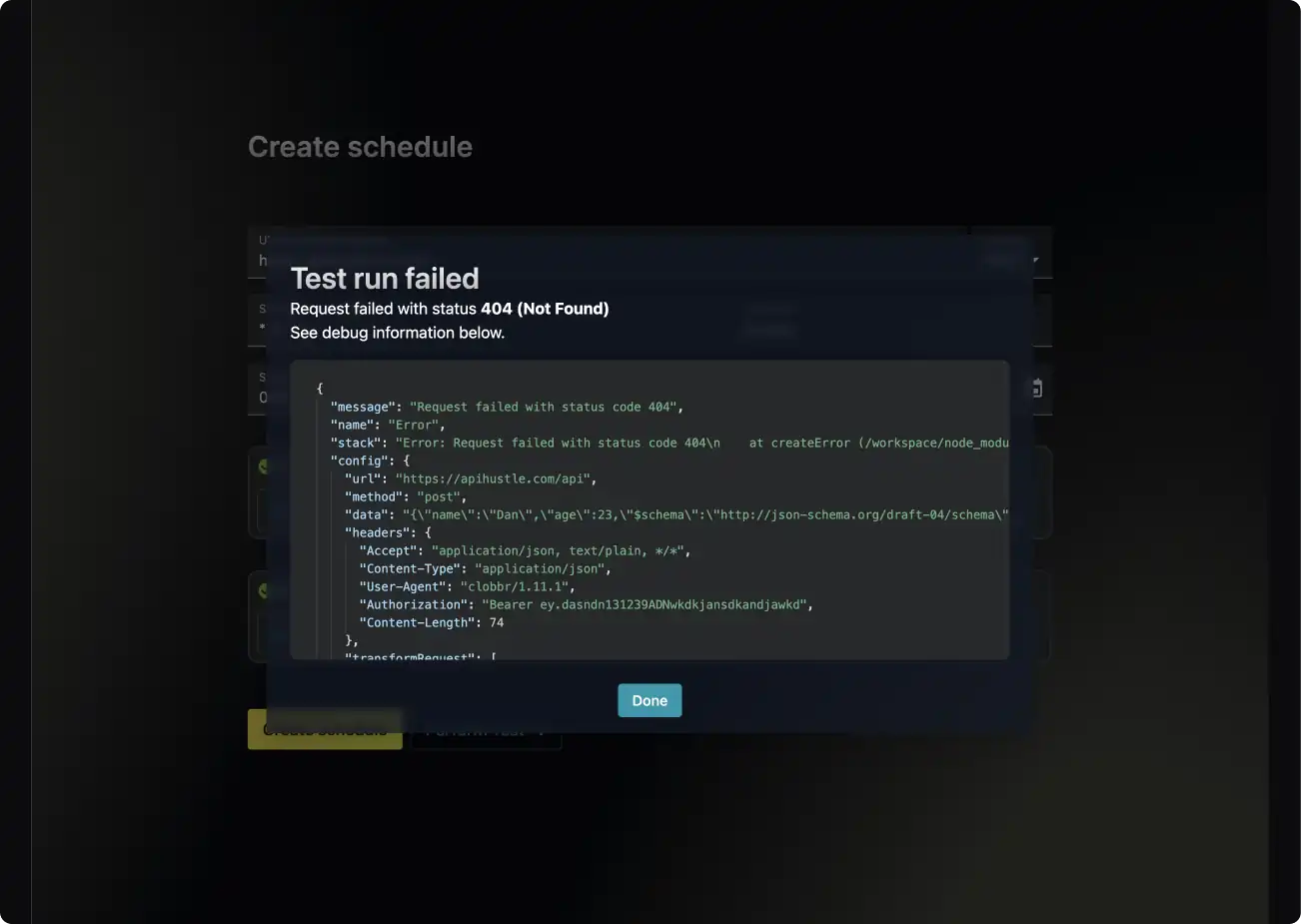
Access historical data directly in the dashboard & see exactly when a scheduled API call was made, how long it took - and if it succeeded or failed!
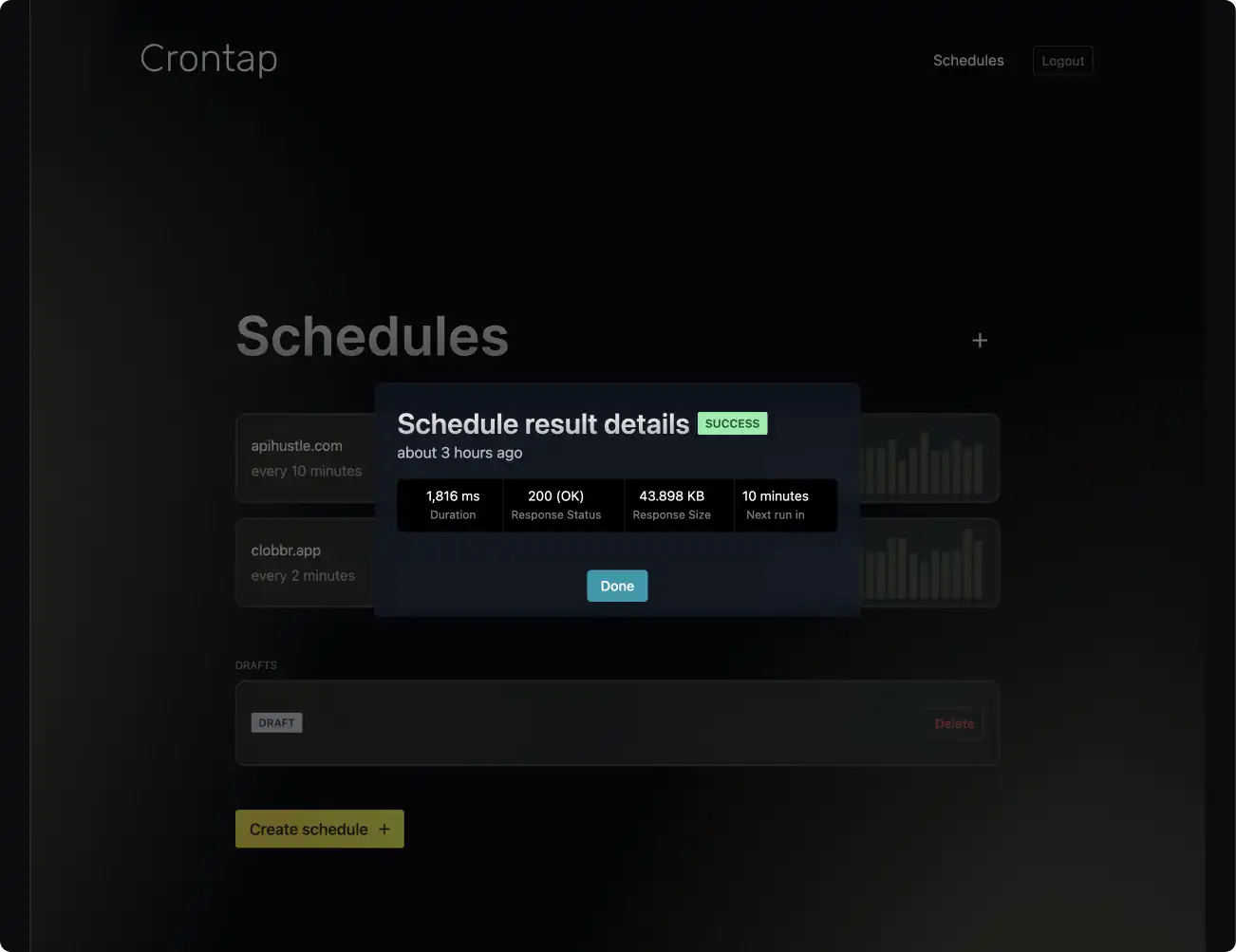
Back-end/Front-end developers, Sysadmins, Business owners have all been needing a service for scheduling recurring webhooks pretty much since the internet existed.
Web cron schedules allow you to automatically generate backups of your data at regular intervals, like daily or weekly. This ensures that you always have a recent copy of your important information in case of any failures or unexpected events.
Web cron schedules enable the scheduling of routine maintenance tasks, such as software updates or log clean-ups, which contribute to the smooth and efficient operation of your systems.
Web cron schedules offer the ability to send periodic requests to an API or microservice and measure the response time. This functionality is valuable for identifying bottlenecks, detecting failures, and proactively preventing downtime.
Web cron schedules provide a means to keep functions, such as AWS Lambda functions, active & ready to respond to requests, avoiding cold starts. This way you can ensure that your functions remain consistently available & responsive, eliminating the delay typically associated with cold starts.
Web cron schedules can be employed to automate the triggering of payments at predefined intervals, such as daily, weekly, or monthly. This enables seamless and consistent payment processing, eliminating the need for manual intervention.
Web cron schedules can be utilized to send periodic requests to an API or microservice to verify its correct and responsive functioning. This approach allows for regular health checks of the API or microservice, ensuring that it continues to respond as expected.
Web cron schedules can be employed to trigger reminders that are sent at specific times, such as reminding a user to take medication or complete a task. By utilizing webhooks for this purpose, you can automate the process of sending timely reminders, ensuring that important tasks or actions are not overlooked.
Web cron schedules trigger timely alerts, emails, or push notifications to keep users informed. By utilizing webhooks, you automate this process, ensuring prompt delivery of important updates and reminders. This enhances user engagement, facilitates effective communication, and keeps users informed and engaged with your application.
Web cron schedules automate the execution of serverless functions at set intervals, like once a day or once an hour. By leveraging webhooks, you can automate the scheduling, ensuring consistent and timely execution. This functionality enables recurring tasks, data processing, and time-based operations without manual intervention.
Use web cron schedules to speed up content delivery by processing Vercel or Netlify builds. By leveraging webhooks, you streamline the build process and optimize content delivery, resulting in improved performance and a seamless user experience. Webhooks for Netlify builds enable efficient content delivery, enhancing the speed and responsiveness of your web presence.
Web cron schedules automate data collection and report generation at regular intervals, like daily or weekly. By leveraging webhooks, you streamline the process, saving time and effort. This ensures up-to-date reports for valuable insights and informed decision-making.
With web cron schedules, you can schedule messages for multiple platforms like Discord, Slack, and Microsoft Teams. By leveraging webhooks, you automate the process of sending messages, enabling efficient communication and coordination within teams or with external stakeholders.
If you are anything like us, you have to repeatedly schedule API calls in order to send emails, push notifications or perform other time-based tasks.
Sign up now with a few clicks and start scheduling API calls in seconds!
Sign up for free, no credit card required.
Read insightful articles from our blog & learn even more about cron, scheduling and webhooks.
Learn how to set up a brand monitoring AI agent, utilizing the power of Crontap for scheduling and Replicate's Llama 3.1 for sophisticated content analysis.
Integrate Crontap with IFTTT to unlock hundreds of apps and automate your workflows. In this guide, we will show you how to post to twitter with Crontap and IFTTT.
New in Crontap! Label your crons and pause/resume schedules. For people with many cron schedules, it is also possible to sort & filter schedules now.
Unlock the power of Crontap and Zapier integration, and revolutionize your workflow efficiency with Airtable. Explore the potential of scheduled webhooks and advanced data management capabilities, empowering you to automate tasks and streamline your processes.
Discover the power of seamless integration between Crontap and Airtable, and unlock the potential for automating your workflow tasks. Learn how to leverage scheduled webhooks and data management capabilities for enhanced productivity and efficiency.
Learn how to use Crontap webhook schedules to integrate with Make.com and thousands of apps: sms, email, telegram, airtable, slack, teams, twitter or your own custom webhook e.g. a cloud function.
Use Crontap webhook schedules to integrate with Zapier and thousands of apps: slack, teams, airtable, sms, email, twitter, telegram or your own custom webhooks such as your own cloud functions.